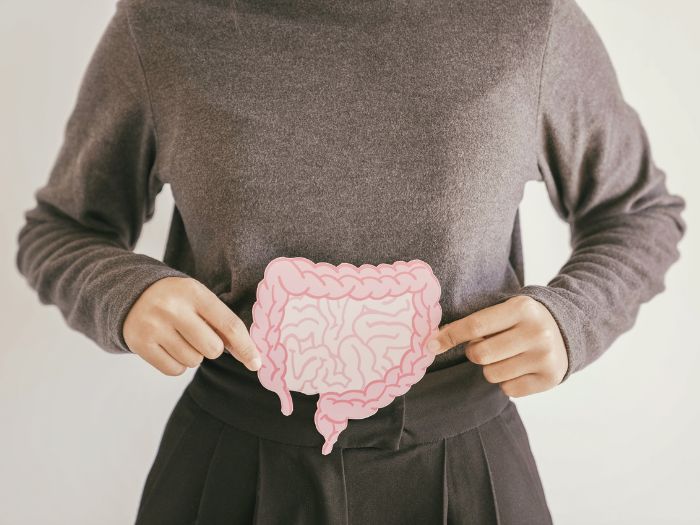Wednesday, March 20 marked International Day of Happiness 2024 and to us at Well on Bay, happiness means healthy.
To put that simply
Being healthy leads to happiness by energising your body, allowing you to enjoy life to the fullest, while minimising physical and mental health issues or mobility problems.
It boosts your mood, making you feel more positive and resilient in facing daily challenges.
Plus, it opens doors to exciting activities and adventures.
To ensure you reap the benefits, here are three simple things you can do to be healthy and happy
1. Enjoy your tea and coffee
It might be surprising to see this on our list but there are a few reasons why. Firstly, tea and coffee (without added sugar) come with a few health benefits:
Tea
- Antioxidants: Particularly green and black tea, contain antioxidants like catechins and flavonoids, which can help protect cells from damage and may lower the risk of chronic diseases such as heart disease and cancer.
- Heart Health: Some studies suggest that regular tea consumption may help lower the risk of heart disease and stroke by improving blood vessel function and reducing inflammation.
- Weight Management: Certain compounds in tea, such as catechins and caffeine, may boost metabolism and increase fat oxidation when consumed as part of a healthy diet and lifestyle.
- Digestive Health: Some herbal teas can soothe digestive discomfort, reduce bloating, and alleviate symptoms of indigestion or nausea.
Coffee
- Cognitive Function: Coffee contains caffeine, which when consumed in moderation, can boost concentration, helping you feel more awake and focused throughout the day (ideally not when you’re trying to sleep). FYI, a standard coffee has around 80–100 milligrams (mg) of caffeine, less than many energy drinks and without sugar.
- Antioxidants: Similarly to tea, coffee is rich in antioxidants like chlorogenic acid.
- Reduced Risk of Certain Diseases: Some studies suggest that moderate coffee consumption may be associated with a reduced risk of certain diseases, including Parkinson’s disease, type 2 diabetes, and certain types of cancer.
- Mood Enhancement: Drinking coffee, especially as a social event, can lower risk of depression and improve mood.
Both
It’s that last point, mood enhancement that can really be beneficial. It’s well known that positive social events can really improve mental health, so if you enjoy a tea or coffee, share the time with a friend.
The caveat
Moderation and keeping an eye on any existing health concerns you may have are key in enjoying tea and coffee, and many other things too for that matter.
Make sure to avoid coffee and caffeine-rich tea in the lead up to going to bed as disrupting a good night’s sleep can be a drain on all those benefits above.
2. Reduce stressors and don’t take on more
We all have things in our lives that cause us stress. Financial pressure, relationships, work, homelife… it’s a long list.
Stress has a negative impact on health because it can trigger a range of physical and mental issues, such as high blood pressure, weakened immune system, and anxiety or depression.
Prolonged or chronic stress can also increase the risk of developing serious conditions like heart disease, obesity, and digestive problems.
There’s a strong correlation between gut health and stress.
A great way to remove and reduce stressors is to write them down, on your phone ideally as it’s easy to edit and view on the go, and make notes on why and when they cause stress and how to reduce it.
For example, you might list:
- Financial strain – worse before payday – cut down on unused subscriptions like some video streaming services.
- No me time – feels worse on Mondays at work – take time on Sunday mornings to be alone
Yours should be more detailed and with many more ways to reduce or remove your stressors.
The reason why writing down stressors and brainstorming ways to reduce them works well is because it helps organise thoughts, identify triggers, and develop actionable solutions.
This process also provides a way to track progress and implement effective coping strategies, just make sure they are healthy.
But what about not taking on more?
Worrying about things out of your control can increase stress levels, anxiety, and feelings of helplessness or despair.
Three ways to avoid worrying about these types of things include:
- Acceptance and let it go: Recognise that some things are beyond your control and practice acceptance of these circumstances instead of dwelling on them.
- Focus on what you can control: Direct your energy and efforts towards actions that you can control, such as planning ahead, adapting to changes, and those in your list from above.
- Living in the present: Activities like exercises and socialising help us stay grounded in the present moment and avoid ruminating on or worrying about uncontrollable, often unavoidable future events.
3. Stay on top of your health with preventative care
Preventative care means maintaining or improving health with the aim of preventing the onset of illness or disease before they occur.
This can include regular check-ups, screenings, vaccinations, healthy lifestyle choices, and early intervention which minimises health risks, especially those common as we age.
Of course, it’s impossible to prevent any and all illnesses and diseases, but you can try. Doing so is a great way to bolster your health in general too.
Here are some simple ways:
Stay social
In real life, not on social media we mean. Socialising helps reduce feelings of loneliness and isolation, while also providing opportunities for emotional support, stress relief and a sense of belonging.
Plus, spending time with friends and loved ones can boost mood, improve cognitive function, and even enhance immune system functioning.
If you find yourself looking for excuses to turn down social invitations, consider the health benefits and fun times you might be missing out on.
Make healthier choices
Medical professionals always bring this up, but it’s for good reason. Try to eat more fruit and veggies, exercise regularly, and get enough sleep.
Sleep plays a huge role in repairing both your body, its organs and your brain.
Also, don’t forget to drink plenty of water and avoid smoking and excessive alcohol.
Snacking is another hot topic when it comes to preventive health. Eating healthy meals is great but when you add unhealthy snacks around them, like chips, soft drinks and fried food for example, it can ruin all your hard work.
Beware of highly processed foods, again like chips, and heavily sauced ones like fried appetisers. These often contain huge amounts of sodium, trans fats and refined sugar.
Don’t make regular check-ups irregular
Regular check-ups with your doctor and staying on top of vaccinations can often help keep sickness at bay.
These simple check-ups are important for preventative health because they help catch potential problems early before they become big issues.
Skin checks are a similar example; IF caught early, 90% of melanomas can be cured through medical intervention.
The survival rate falls to just 35% when the disease reaches distant organs – when left untreated.
Regular check-ups are also an opportunity to discuss any concerns or questions you may have with your doctor, ensuring that you’re taking the best possible care of yourself.
Your doctor can give you personalised advice on staying healthy based on your medical history and lifestyle.
If you’re due for a check-up or would like to ensure your body isn’t hiding anything potentially dangerous, get in touch with us.

Combining health and happiness in summary
There’s no doubt that being healthy leads to a happier life. Think about happy memories you have, they might include when you were on holiday, at a social event or moving into a new home.
All of these things require us to be in good physical and mental health.
Take a few steps towards a healthier, happier you and enjoy the benefits—there are many.







